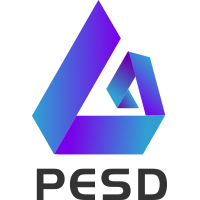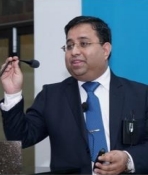
Prof. Qihui Chen, China Agricultural University, ChinaResearch field: Applied Microeconomics, Human Capital, Development, Impact EvaluationDr. Qihui Chen is a professor of applied economics in the College of Economics and Management at China Agricultural University. He received his Ph.D. degree in Applied Economics from the University of Minnesota–Twin Cities in 2012. Dr. Chen’s research applies econometric methods to study education, health, and welfare issues in developing countries, especially how government policy, intervention programs, and family resources can affect the accumulation of children’s human capital. His research has appeared in various international journals such as Applied Economics, Economics and Human Biology, Economics Letters, Food Policy, International Journal of Educational Development, Journal of Economic Education, Journal of Wine Economics, and Nature Communications, among others. Dr. Chen is currently serving as an Associate Editor of China Agricultural Economic Review and on the Editorial Board for several other journals. He has also been a consultant for the World Bank for many years. Title: Can energy-saving policy induce green innovation? Regression-discontinuity evidence from China’s Top 10,000 Enterprises Action Plan (2011–2015) Abstract: Many countries have implemented environmental regulations to address climate change. Although most of these regulations achieved their intended environmental goals, whether they promote firms’ sustainable development (particularly through innovation) remains debated. This study exploits a quasi-experiment created by China’s ‘Energy-Saving and Carbon-Reduction Action Plan for the Top 10,000 Energy-Consuming Enterprises’, implemented from 2011 to 2015, to estimate the effect of environmental regulation on industrial firms’ green innovation behavior. The regulation rule that industrial firms with energy consumption exceeding 10,000 tons of standard coal in 2010 would be regulated facilitates the application of a fuzzy regression discontinuity design as the primary method. Our analysis, based on firm-level data covering 18,140 industrial firms from 2012 to 2014 compiled from multiple sources, reveals a significant innovation-encouraging effect of the policy. Compared with just-unregulated firms, just-regulated firms were 13.6% and 13.8% more likely to submit invention-type green-patent applications and utility-type applications, respectively, which translated into 0.95 more invention-type green-patent applications and 0.75 more utility-type applications. Serving as a channel, firms’ research and development spending more than doubled as a result of the regulations. Corroborative evidence shows that firms’ energy consumption and nitrogen oxide emissions decreased by 60.3% and by 76.8%, respectively.
|
|
| Prof. Md. Mamun Habib, Independent University, BangladeshResearch field: supply chain management, production & operations management, operations research, research methodology, engineering/technology management, and educational managementProf. Dr. Md. Mamun Habib is a Professor & Head of the Management Department at the School of Business & Entrepreneurship (SBE), Independent University Bangladesh (IUB). Dr. Habib is the Visiting Scientist at the Dept. of Industrial Engineering of the University of Texas – Arlington, USA. He is also a Visiting Professor at Unirazak, Malaysia and UCSI, Malaysia; PUP, Philippines; Beijing Wuzi University, China; and Universitas Ciputra, Indonesia. Currently, he is supervising Ten (10) Ph.D. scholars locally and internationally, and eleven (11) Ph.D. scholars have been awarded earlier. His core research areas are supply chain management, production & operations management, operations research, research methodology, engineering/technology management, and educational management. Habib is an active member of different professional organizations, including IEEE (Senior Member); Chartered Fellow (FCILT), CILT International, UK; VCARE Academy, Canada; IEOM (President, SCM Technical Division); BSPUA (V.P, R & I); IETI (Senior Member and Board of Director); IRED (Fellow); GRDS (Vice-President) to name a few. He received “Outstanding Professor in Business Management” by IEOM, USA in 2023. He is involved with QS World University Ranking and Times Higher Education Ranking as an academician. He is connected to the industry as a Consultant at AmCham; USAID, BAFFA. Title: Sustainable Educational Supply Chain Management in the Post-Pandemic Era Abstract: This keynote speech will present the theory and evolution of Supply Chain Management (SCM), highlighting the latest innovations in research, while also providing a chronological perspective on SCM within various areas of manufacturing and service industries. The objective of SCM is to incorporate activities across and within organizations to provide value to customers and stakeholders. This keynote will illustrate SCM from raw materials to finished products, i.e., from suppliers to consumers across various industries. Students and Research Projects are recognized as raw materials, whereas graduates and research outcomes are treated as finished products. Due to the pandemic impact, the scenario of supply chain management has changed in the educational supply chain. Due to the application of AI, Automation, Blockchain, big data, etc., this keynote speech demonstrates technology-enabled, resilient, transparent SCM for tertiary educational institutions. |
Assoc. Prof. Yahua Xu, Central University of Finance and Economics, ChinaResearchfield: asset pricing, risk management, and derivatives marketsDr. Yahua Xu is currently an Associate Professor of Finance at the Central University of Finance and Economics. She holds a Ph.D. from Auckland University of Technology in New Zealand. Her research focuses on asset pricing, risk management, and derivatives markets. She has co-authored multiple articles published in internationally renowned journals such as Energy Economics and Journal of Futures Markets. Title: Noise or Fundamentals? The Predictive Role of Social Media in the Crude Oil Market Abstract: This paper examines the role of social media sentiment in predicting returns in the crude oil market. We find that social media sentiment significantly predicts crude oil market returns, with its predictive power stemming from both fundamental information and noise. Positive sentiment is primarily associated with fundamental information, leading to lasting price changes, whereas negative sentiment is largely noise-driven, resulting in temporary price changes that eventually revert. In addition, only positive sentiment predicts crude oil inventory changes, further emphasizing its link to fundamental information. Furthermore, we isolate social media insights from news media and find that social media provides unique, incremental information beyond traditional news outlets. |
|
| Prof. Syed Abdul Rehman Khan, Xuzhou University of Technology, ChinaResearch field: research articles related to digital technologies, sustainable development and sustainable supply chain managementDr. KhancompletedPostdoctoral Fellowship from Tsinghua University (World 16th Ranked University). He has published nearly200research articles related to digital technologies, sustainable development, sustainable supply chain management, sustainable economic development,and technology-enabledCircular Economy approachesin different international well-known indexed journals. In addition, Dr. Khan received highly cited researcher awards consecutively from lastfiveyears.
Dr. Khan has been invited as a keynote speaker and invited speaker in 50+ international conferences. Also, he has published nine books related to the digital technology and sustainability aspects in business operations. Title: Technology-driven Circular Economy: Future of the businesses Abstract: Industry 4.0 and Industry 5.0, known as the Fourth and Fifth Industrial Revolutions, are driving significant transformation in business operations. Digital technologies demonstrate substantial potential to advance circular economy practices and support sustainability objectives. In recent years, several businesses have utilized technology-enabled circular economy (TECE) approaches to reduce the environmental impact of their supply networks. The goal is to minimize adverse environmental effects, such as those caused by excessive energy, water, and waste use. Technology-enabled Circular Economy practices are becoming increasingly crucial for growing firms as well as for addressing global issues. This research compellingly explores how emerging technologies significantly influence firms' environmental and social performance through the application of Circular Supply Chain Practices (CSCPs). Utilizing Smart-PLS for advanced structural equation modeling, the findings underscore the critical role of emerging technologies in the circular economy. Moreover, the results demonstrate that Circular-based Business Operations not only enhance firms' environmental performance but also foster the development of eco-friendly business models, paving the way for a more sustainable future. |



